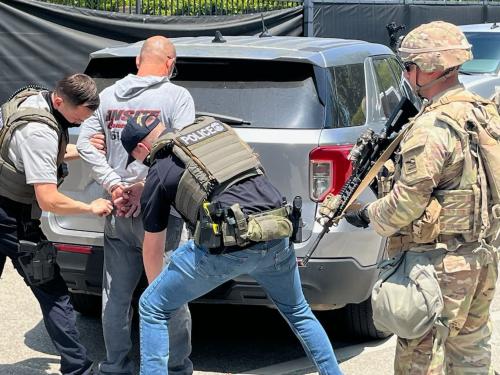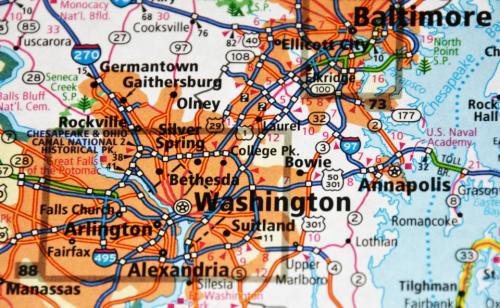In the 2005 questionnaire, the World Values Survey asked 77,000 individuals in 54 countries the following question: “In political matters, people talk of ‘the left’ and ‘the right.’ How would you place your views on this scale, generally speaking?” Respondents placed their ideological preference in a scale from 1 (left) to 10 (right).
Based on the responses, Dalgaard and Olsson (2009) constructed a measure of political cohesion, defined as one minus the proportion of individuals that answer either 1 or 10. That is, the percentage of respondents that do not take an extreme political position when asked to identify their ideological preference. In the average country, 84 percent of the population does not adopt an extreme political position.
The presumption is that the lower the extremism in political affiliation (the lower the centrifugal nature of the distribution of answers), the more capable a society is to agree and align its interests—and, thus, the higher the degree of “political cohesion.” Moreover, a simple regression suggests that “political cohesion” and GDP per capita (PPP) are highly correlated. Establishing causality is a different, and to a large extent, unsettled matter.
Out of the eight Latin American countries included in the Survey (Chile, Peru, Colombia, Argentina, Mexico, Uruguay, Guatemala and Brazil) only Argentina (91.1 percent) and Chile (89.9 percent) have levels of “political cohesion” comparable to the OECD countries’ average of 93.9 percent. See Figure 1.
Mexico and Colombia are the two countries with greatest political polarization in Latin America. In Mexico, 36 percent of the population considers itself either extreme right or extreme left. The corresponding figure for Colombia is 30 percent. Interestingly, in both countries individuals are overwhelmingly self-identified with an “extreme right” ideology. In fact, 24.8 percent of the respondents choose that option in Colombia, and 23.0 percent do so in Mexico. See Figure 2.
It is likely that, upon facing threats of institutional breakdown by irregular armed groups, such as guerrillas and drug cartels, both societies have adopted a “hard line” defensive ideology. Alvaro Uribe and Felipe Calderón capture that sentiment and are rewarded with high popularity. But the low degree of political cohesion can be very costly as well. Political moderation and alignment of interests favors policies that are sustained during longer periods of time. Also, the influence of markets and competition is greater in more politically cohesive societies, creating a virtuous cycle. In other words, political moderation favors economic growth and vice versa.
The Brookings Institution is committed to quality, independence, and impact.
We are supported by a diverse array of funders. In line with our values and policies, each Brookings publication represents the sole views of its author(s).



Commentary
Political Polarization in Latin America
November 6, 2009